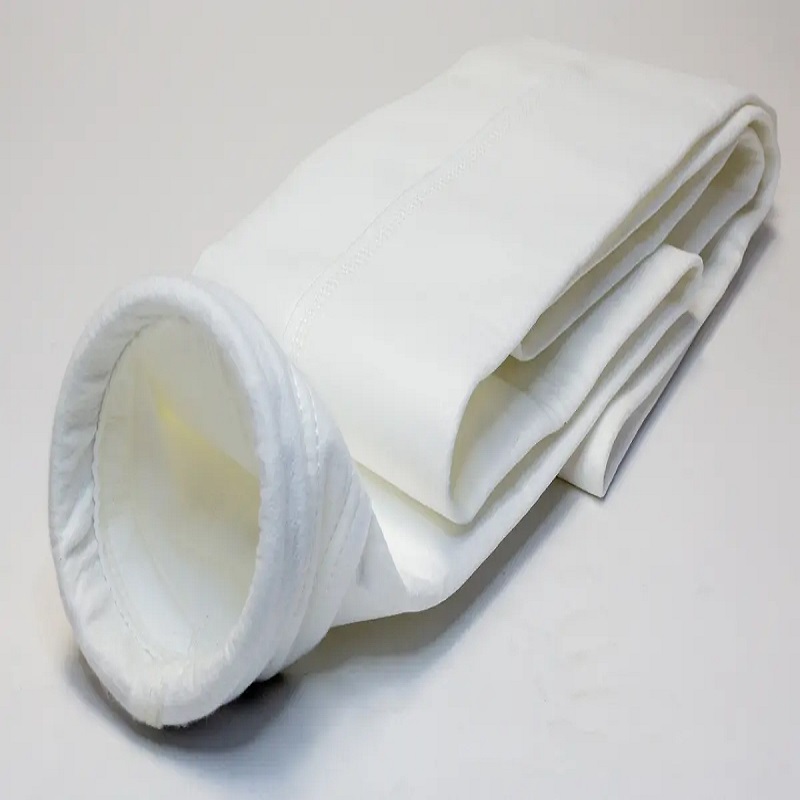- English
- Español
- Português
- русский
- Français
- 日本語
- Deutsch
- tiếng Việt
- Italiano
- Nederlands
- ภาษาไทย
- Polski
- 한국어
- Svenska
- magyar
- Malay
- বাংলা ভাষার
- Dansk
- Suomi
- हिन्दी
- Pilipino
- Türkçe
- Gaeilge
- العربية
- Indonesia
- Norsk
- تمل
- český
- ελληνικά
- український
- Javanese
- فارسی
- தமிழ்
- తెలుగు
- नेपाली
- Burmese
- български
- ລາວ
- Latine
- Қазақша
- Euskal
- Azərbaycan
- Slovenský jazyk
- Македонски
- Lietuvos
- Eesti Keel
- Română
- Slovenski
- मराठी
- Srpski језик
What are the application prospects of incinerator dust collectors? And the selection of filtering materials.
2024-09-25
Application prospects of incinerator dust collector
-Policies drive demand growth
-With the increasing global emphasis on environmental protection, governments around the world are becoming increasingly strict in regulating pollutant emissions from industries such as waste incineration and hazardous waste treatment. For example, China has introduced a series of environmental policies and standards that require incinerators to be equipped with efficient dust removal equipment to reduce emissions of pollutants such as particulate matter. This policy orientation provides a strong driving force for the application of incinerator dust collectors, prompting relevant enterprises to actively install and upgrade dust collector equipment, and the market demand continues to grow.
-Some regions are also renovating or phasing out old incinerators, and new incinerator projects will inevitably be equipped with advanced dust collectors, which also brings new opportunities to the incinerator dust collector market.
-Expanding demand for garbage disposal drives market development
-With the acceleration of urbanization and population growth, the amount of urban household waste generated continues to increase. Garbage incineration is an important waste disposal method that can achieve the reduction, harmlessness, and resource utilization of garbage. Therefore, the number of garbage incinerators continues to increase, and the demand for incinerator dust collectors also increases accordingly.
-In addition to household waste, the treatment of hazardous waste such as industrial waste and medical waste also requires the use of incinerators, and the development of these fields has brought broad market space for incinerator dust collectors.
-Technological progress enhances competitiveness
-In recent years, dust collector technology has continued to advance, and new types of incinerator dust collectors have made significant improvements in dust removal efficiency, operational stability, and energy efficiency. For example, some new types of bag filters use more advanced filter materials and cleaning technologies, which can better adapt to the high temperature and high corrosiveness of incinerator flue gas, while reducing operating costs and maintenance difficulties. These technological advancements have improved the competitiveness of incinerator dust collectors, making them more attractive in the market.
-The application of intelligent technology has also brought new opportunities for the development of incinerator dust collectors. Through technologies such as sensors and the Internet of Things, real-time monitoring and remote control of the operation status of dust collectors can be achieved, improving the level of equipment operation management and reducing the incidence of failures.
Selection of filter materials for incinerator dust collectors
-PTFE (polytetrafluoroethylene):
-Advantages: Strong chemical stability, excellent acid and alkali resistance, corrosion resistance, can be used for a long time in the range of -180 ℃ to 260 ℃, and can withstand various corrosive components in incinerator flue gas; The surface free energy is very low and has a high degree of non adhesiveness. Dust is not easily attached to the surface of the filter material, making it easy to clean and maintain good filtration efficiency; Has good hydrolysis resistance and extremely low friction coefficient, with a long service life.
-Disadvantages: Poor physical strength, insufficient dimensional stability at high temperatures, and relatively high price.
-P84 (polyamide fiber):
-Advantages: The fineness of the fiber itself gives it a large specific surface area, good filtration effect, and the ability to efficiently collect fine powder particles; Has excellent high temperature resistance, with a temperature resistance of up to 260 ℃ to 300 ℃, suitable for high-temperature flue gas environments in incinerators; Has certain resistance to hydrolysis and oxidation, excellent chemical stability, and can be used in pH 2-12 environments; The backwash pressure is low, the efficiency of filter cake rebound is high, and it can reduce operating costs.
-Disadvantage: The price is relatively high and may be limited in some cost sensitive projects.
-Fiberglass:
-Advantages: It has the advantages of high temperature resistance, corrosion resistance, dimensional stability, low elongation and contraction rate, high strength, relatively low price, and is a relatively economical filter material; Glass fiber filter bags have high porosity and filtration efficiency, which can meet the requirements of dust removal efficiency for incinerator dust collectors.
Disadvantages: Glass fiber filter bags have high operating resistance and require more energy to overcome resistance; During long-term use, glass fibers may become brittle, fracture, and other phenomena, affecting the service life of filter bags.





